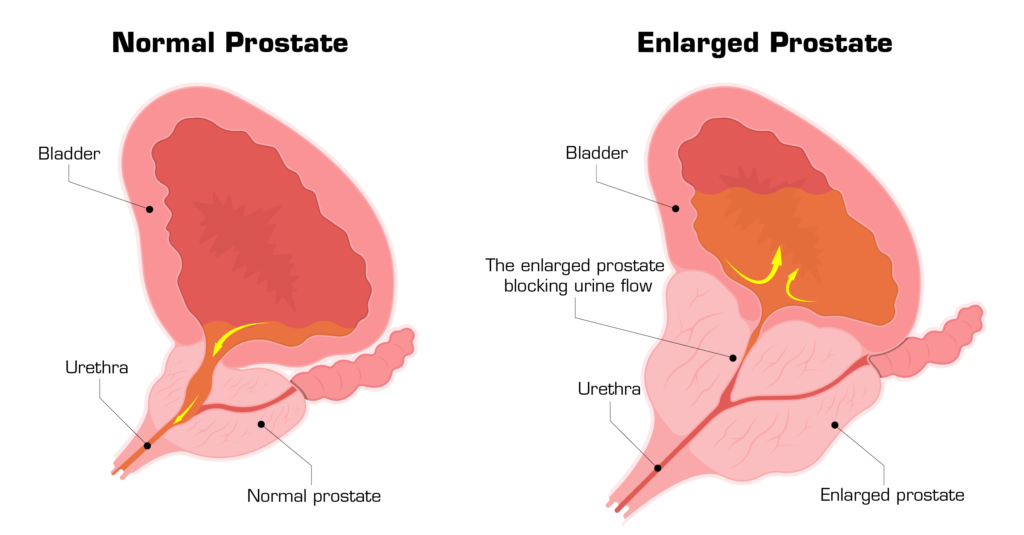Enlarged Prostate
What is benign prostatic hyperplasia?
Benign Prostatic Hyperplasia (BPH) is a condition where the prostate gland becomes enlarged. The prostate is a small, walnut-sized gland located just below the bladder and in front of the rectum, and it surrounds part of the urethra—the tube that carries urine and semen out of the body.
When the prostate enlarges, it can press against the urethra, making it harder for urine or semen to pass through. Although BPH is not cancerous, its symptoms can be similar to those of more serious conditions, such as prostate cancer, so proper evaluation is important.
Does having benign prostatic hyperplasia increase the risk of prostate cancer?
Studies show that having BPH does not increase the chances of developing prostate cancer. However, the two conditions often produce similar symptoms. Because of this, someone with BPH may also have undiagnosed prostate cancer at the same time.
Doctors recommend that anyone with a prostate undergo annual screenings between ages 55 and 69 to catch prostate cancer early. However, doctors advise individuals at higher risk—such as Black men or those with a family history of prostate cancer—to begin screenings as early as age 40.
What causes Benign Prostatic Hyperplasia (BPH)?
The exact cause of BPH is still unknown, but hormonal changes with age may play a role. As men get older, testosterone levels decrease, while estrogen levels stay the same, possibly triggering prostate cell growth. Additionally, higher levels of dihydrotestosterone (DHT)—a stronger form of testosterone—are found in older men and may contribute to prostate enlargement. Interestingly, taking testosterone supplements can also lead to or worsen BPH.

Who is affected by Benign Prostatic Hyperplasia (BPH)?
BPH is the most common prostate condition and affects nearly everyone with a prostate as they age.
How common is it?
BPH is very common—about 50% of men show signs of it by age 60, and around 90% by age 85. Roughly half of those diagnosed will experience symptoms significant enough to need treatment.